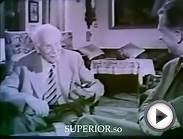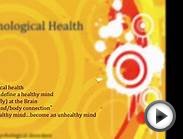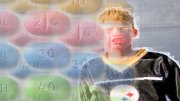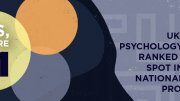
My previous post, "The Changing Face of Psychological Health, " provoked a number of comments about serious mental illness. That was understandable, especially in the light of the Tucson shootings. But they also missed the point of my post: That we lack a clear, relevant description of what psychological health is, in today's world; and, how you can build it. So in this post I describe more about what a psychologically healthy life looks like, today - in your relationships, your work, and in your role as a "future ancestor."
First, keep in mind that psychological health isn't the same as the absence of mental or emotional disorders. For example, you can't say that a happy person is someone who's not depressed. Many people have consulted me who aren't depressed by clinical criteria, but they aren't happy with their work, relationships or their overall lives, either.
Moreover, self-awareness isn't equivalent to health. It's a necessary underpinning, but it's not enough. Therapists often help their patients deepen self-awareness about the roots of their conflicts, only to wonder why they remain the same. Psychiatrist Richard Friedman described that dilemma in a recent New York Times article in which he illustrated the puzzlement practitioners experience when they are confronted with the limitation of awareness, alone.
To the extent there's a conventional view of psychological health at all, it's mostly equated with good life-management and coping skills. That is, managing stress in your work and personal life, and coping with - if not resolving - whatever emotional conflicts you brought with you into adulthood.
A less visible view of psychological health also exists: Successful adaptation to and embracing of the dominant values, behavior and attitudes of the society or milieu you're a part of. The problem here is that such socially-conditioned norms have also embodied greed, self-absorption, domination, destructiveness and divisiveness. They've been equated with "success" in adult life.
The upshot is that you can be well-adapted to dominant attitudes and behavior that are, themselves, psychologically unhealthy. So you may be "well-adjusted" to an unhealthy life.
See also:Source: www.huffingtonpost.com
You might also like:




|
The 5 Human Types, knowing your type Mobile Application (iMedia)
|

|
(personality, ptsd) The Posttraumatic Self (ISBN 0415950163) by John Wilson, Ph.D. (14 CE Credits or 14 CME Credits only, book not included) Single Detail Page Misc (Red Toad Road Company)
|
|
(ptsd, anxiety, personality), THE POSTTRAUMATIC SELF (book + 14 CE or 14 CME credits) ISBN 0415950163 by John Wilson, Ph.D. (continuing education, psychology, social work, psychiatry, evidence based practices) Home (The Red Toad Road Company)
|














